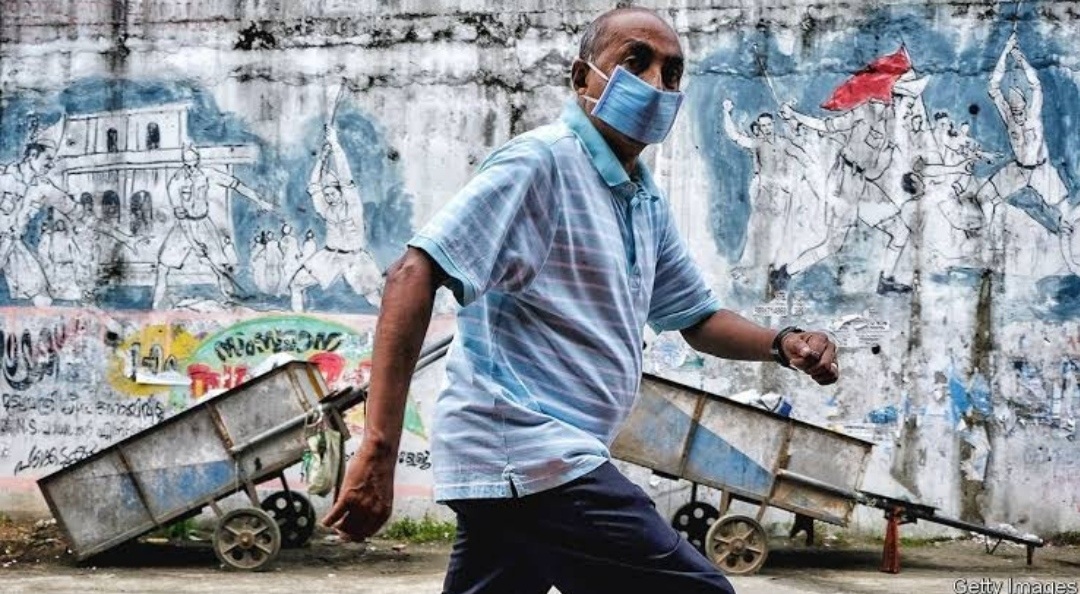New Delhi: Many state governments have announced strict curbs to check the spread of Omicron variant, which has infected more than 1,500 people across the country.
Here is a list of curbs imposed by various state governments and administration of union territories:
Maharashtra: The state government announced fresh Covid-19 guidelines last week in which it capped the number of people at weddings, social, political, religious events and funerals. In case of marriages or any other social, political or religious event, the maximum number of attendees shall be restricted to 50 persons. The maximum number of attendees is restricted to 20 in funerals, a government order said. The Mumbai Police have already imposed Section 144 in the city from December 30 to January 7.
Delhi: The national capital recorded 3,194 new Covid-19 cases on Sunday, up from 2,716 cases reported a day earlier. The tally was the highest single-day rise in since May 20, while the test positivity rate stood at 4.59 per cent. The Delhi government has implemented restrictions under the Graded Response Action Plan (GRAP), which has put Delhi under ‘yellow’ alert. This means that schools, colleges, movie theatres, yoga studios are closed and night curfew is in place (from 10pm to 5am). If the positivity rate deteriorates further, more restrictions will be put in place in Delhi.
Chandigarh: Due to an upsurge in Covid-19 infections, the disaster management authority of the union territory of Chandigarh has restricted the entry of people in public places. All restaurants, including hotels, coffee shops and other eating places, have been directed to operate with 50 per cent of capacity. Only those who have taken both doses of vaccine will be allowed entry, the authority said.
West Bengal: The West Bengal government on Sunday said that it would restrict flights from New Delhi and Mumbai, the two cities witnessing the largest surge in Covid-19 infections in recent weeks, to just twice a week in a measure to combat the spread of the pandemic in the state. The state government has also shut schools and colleges, and asked offices to operate with a half their workforce. Chief secretary HK Dwivedi announced that only essential services will be permitted to operate between 10pm and 5am in the state till January 15. West Bengal witnessed a sudden spurt in Covid-19 cases with a near 14-fold rise in the last seven days.
Haryana: All universities and colleges have been ordered to remain closed till January 12 for students, the Haryana higher education department said on Sunday in view of rising Covid-19 cases. Students are allowed to remain in hostels subject to strict observance of Covid appropriate behavioural norms and social distancing. A night curfew from 11pm to 5am is also in place in the state. Public gatherings of over 200 people and events have been barred till further notice. Haryana reported 577 new Covid-19 infections in the last 24 hours, as per the state health bulletin on Sunday. With this, the total number of infections in the state rose to 7,74,917 including 2,400 active cases.
Telangana: The state government has imposed fresh Covid curbs in the state as a precautionary measure. Rallies, public meetings, mass gatherings of all types including religious, political and cultural events will be strictly prohibited throughout the state, according to Telangana government order. Mandatory wearing of face masks, physical distancing, frequent sanitisation of premises, provision for hand hygiene and screening at entry points with IR thermometers/thermal scanners has been made compulsory for public transport, shops, malls, establishments and offices. The order will remain in force till January 10, 2022.
Tamil Nadu: With Covid-19 cases in the state rapidly rising, the Tamil Nadu government on Friday announced fresh restrictions, limiting malls, theatres, jewellery shops, textile stores, beauty parlours, showrooms, amusement parks, and metro trains to operate at 50 per cent capacity.
Gujarat: The Gujarat government has imposed a night curfew in Ahmedabad, Vadodara, Surat, Rajkot, Bhavnagar, Jamnagar, Gandhinagar, and Junagadh to check the spread of the pandemic.
Karnataka: The state government announced a 10-day night curfew on December 27 and banned New Year parties and public gatherings. Hotels, pubs, and restaurants have been asked to operate at 50% capacity in the state. The state government has ordered patrolling and surveillance in districts adjoining Maharashtra and Kerala to prevent the spread of the virus.
Rajasthan:
The Rajasthan government has imposed new curbs as precautionary measures in view of the rising Covid-19 cases in the state. According to the new guidelines, the number of people attending political and other rallies, dharnas, fairs and weddings has been capped at 100 while schools have been closed in the Jaipur city for classes 1 to 8.


